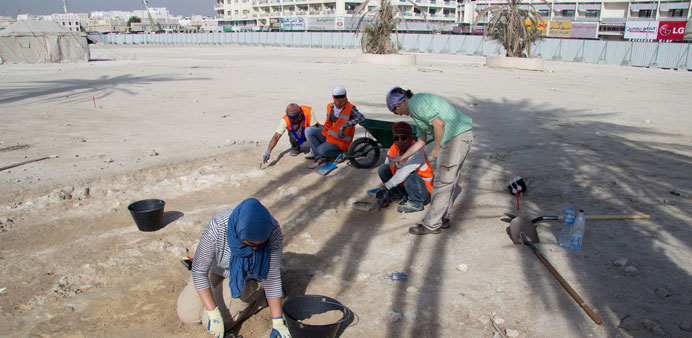Archaeological investigations are underway in the heart of Doha as part of the University College London (UCL) Origins of Doha Project, a Qatar National Research Fund initiative.
A joint team of excavators from UCL Qatar and Qatar Museums Authority are examining the open ground next to the Qubib Mosque adjacent to Souq Waqif.
Initial investigations have already revealed buildings relating to the last phase of traditional housing in the area (around the mid 20th century), and older remains will be preserved below.
The excavations aim to explore the foundation of Doha, its growth and florescence as one of the major pearl fishing towns of the Gulf, and its transformation to a modern city.
Historical sources provide very little information on the nature of the town and the experiences of its people, but archaeology is able to fill these gaps and provide a colourful picture of the daily lives of the men, women and children who inhabited the city from its earliest days.
This will be the first extensive urban excavation in Qatar, and indeed the first major urban excavation in the Gulf. The site is under development as a future Q-Rail station, making the recovery of archaeological remains in the area extremely important. The excavations are in collaboration between QMA and Q-Rail.
Dr Robert Carter, senior lecturer in archaeology at UCL Qatar and director of the Origins of Doha Project said: “Few people realise that the past still lies beneath their feet in many parts of the centre of Doha. We have a wonderful opportunity to investigate this before it is destroyed for ever. We are expecting to gain insights into town life during the last couple of centuries. Archaeology is full of surprises.”
Archaeologists from QMA and the Origins of Doha Project will continue to excavate until mid-January.

Archaeologists excavating the open ground next to the Qubib Mosque adjacent to Souq Waqif in Doha.
